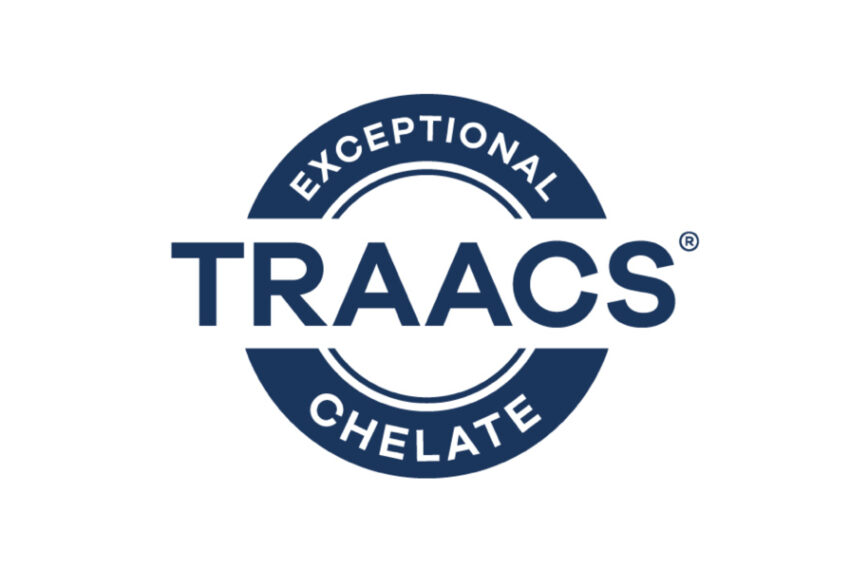Albion® Minerals

Albion® Minerals — A Legacy of True Chelation
Backed by sound science and over 150 patents from manufacturing processes to food applications, Albion® Minerals is the leading brand of chelated minerals for premier human nutrition products. Balchem is your trusted source for safe, proven, effective, organic minerals!

Why Albion® Minerals?
With 200 scientific studies, 100 patents, and 70 human clinical trials conducted using Albion® Minerals, Balchem is the established market leader in delivering health benefits that can be used in multiple stages of life and deliver nutrition to all consumers. Our chelates meet regulatory standards for safety in the US and in many markets across the globe.
At Balchem, we offer a broad array of products that can be used in a wide range of product applications, including dietary supplements and select food items.
Alternative Solutions
Our chelated minerals and nutrients deliver consumer-derived wellness needs for all ages. Our functional nutritional powders, extruded crisps and proteins, and other food manufacturing capabilities provide for more novel delivery forms and formats to accommodate consumers looking for nutrition outside of a pill or capsule. Albion® Minerals offers alternative solutions for consumers compared to the typical, everyday dietary supplements.

Chelation
What exactly is a “chelate” (pronounced key-late)?
Chelation can improve the bioavailability of these minerals to the body.
The term chelate is derived from the Greek word “chele (χηλή)”, meaning claw-like, and describes the structure of a certain mineral form in which a mineral molecule is held at more than one point of attachment and a ring structure is formed. Appropriate intake levels of certain nutritive minerals have been proven to be required to maintain optimal human health.
Organic mineral amino acid chelates have been scientifically proven to be more easily absorbed into the human body and to cause less gastric upset than inorganic minerals. Part of the reason for this, higher tolerance and bioavailability is that chelated minerals are absorbed intact and will then break apart in the intestinal cell for transport. With the highest quality chelated mineral ingredients on the market, Albion® Minerals is the world-leading product brand in mineral nutrition.
Building Better Minerals
A pioneer of chelated minerals, Albion® Minerals promotes optimal tolerability, giving consumers a bioavailable and digestive-friendly experience in their daily consumption. Greater bioavailability results in a more cost-effective solution for consumer packaged goods (CPG) companies, delivering a higher dose and reducing cost-in-use versus other forms.
We combine science and patented technology to create an organic molecule that can be easily absorbed by the human body. These special organic forms are mineral amino acid chelates; which are used in nutraceutical supplements and functional food fortification to provide complete organic mineral nutrition. This gives the consumer the greatest chance to absorb minerals for their best biological advantage.
In their ordinary form, minerals are inorganic elements and difficult for the body to absorb. Balchem does the body’s work in advance by producing natural organic chelates that can easily be absorbed through the intestinal wall. Appropriate intake levels of certain nutritive minerals have been proven to be required to maintain optimal human health. Albion® Minerals offers solutions to help!
Balchem provides solutions that delight and nourish – from indulgence and sensory experiences to the rigors of targeted essential nutrition. Engage with us to discover how our resources can enable your differentiation in the market.
These minerals offer a multitude of health benefits for people from all walks of life. We encourage you to learn more about these minerals by checking out our blog or reaching out to one of our knowledgeable representatives to see if any of these minerals can give your customers the vitality boost they seek.
Products
TRAACS®
The Real Amino Acid Chelate System by Albion® Minerals.
We were pioneers – the first to showcase proof of chelation – and our total mineral portfolio is supported by over 160 publications, numerous patents, and close to 80 human studies. Our patented mixed amino acid and nanoparticle-free chelates further highlight our industry leadership. We’re dedicated to cutting through the noise, offering essential minerals in a premium, trustworthy form.

Albion® Minerals
With 200 scientific studies, 100 patents and 70 human clinical trials conducted using Albion® Minerals, Balchem is the established market leader in delivering health benefits that can be used in multiple stages of life and deliver nutrition to all consumers.
Our chelates meet regulatory standards for safety in the US and in many markets across the globe. We offer a broad array of products that can be used in a wide range of product applications, including dietary supplements and select food items.
Benefits of Chelates?
Appropriate intake levels of certain nutritive minerals have been proven to be required to maintain optimal human health.
Organic mineral amino acid chelates have been scientifically proven to be more easily absorbed into the human body and cause less gastric upset than inorganic minerals. Part of the reason for this higher tolerance and bioavailability is that chelated minerals are absorbed intact and break apart in the intestinal cell for transport. With the highest quality chelated mineral ingredients on the market, Albion is the world leader in mineral nutrition.
Product List
Trending NOW!
- Unlocking the Power of Essential Minerals for Immune Health Helping our immune system function optimally requires a multifaceted approach, with proper nutrition playing a central role. While numerous nutrients …
- Unlocking the Power of MSM for Bone & Joint Health Are you an active adult between the age of 45-75 and seeking ways to fortify your joint health and support …
- Unveiling our Refreshed Brand Image Centered on Powering Performance and Maximizing Health SpanMontvale, New Jersey, (9 April, 2024) – We are pleased to announce, our Balchem Human Nutrition and Health (HNH) Team …
- The Sleep Solution: How Magnesium Can Help You Achieve Restful Nights “Make sure to get enough sleep.” We all hear this line repeatedly in an effort to ensure we get our …












